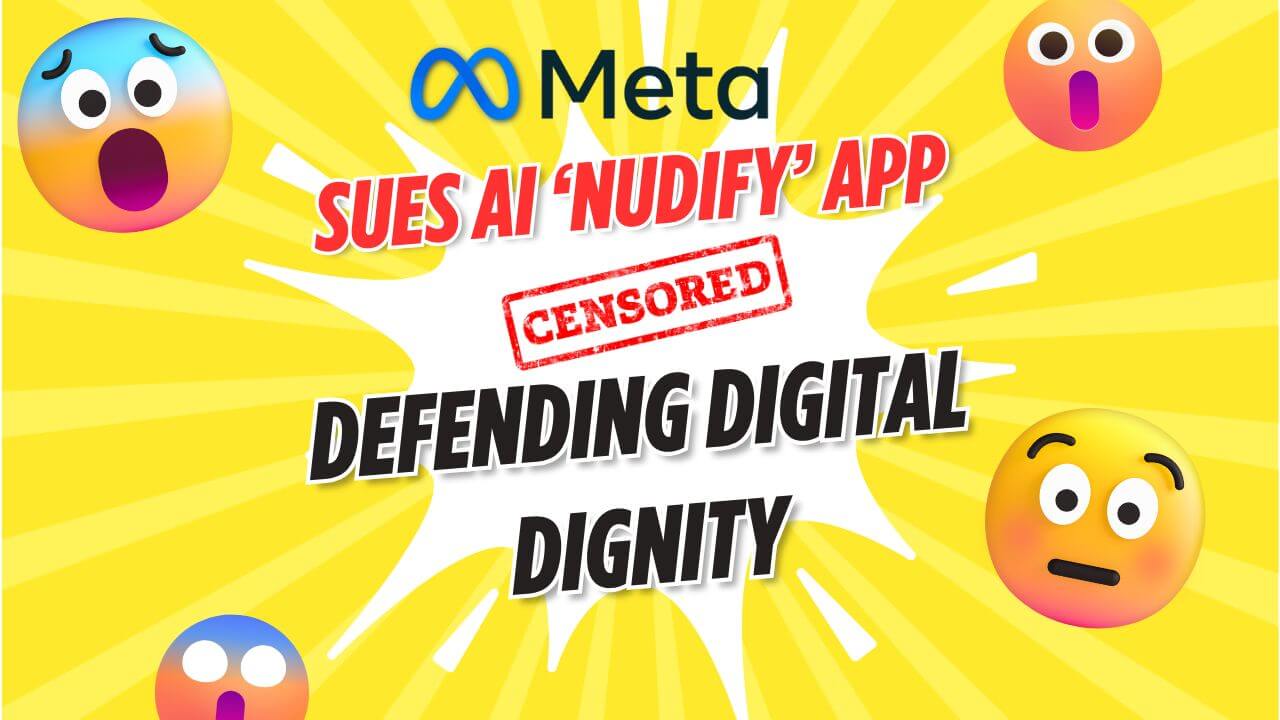The Story: A Violation of Digital Dignity
Meta has taken legal action against a deepfake “nudify” app developed by Joy Timeline HK Limited that uses artificial intelligence to remove clothing from photos and generate nonconsensual intimate imagery. According to a recent report on MSN News, the app—known as Crush AI—bypassed Meta’s ad review processes and placed tens of thousands of ads across Facebook and Instagram, promising to “erase any clothes” from photos. Despite Meta’s repeated removal of these violating ads, the app managed to continue its campaigns, forcing the tech giant to file a lawsuit in Hong Kong to safeguard its community from such abuse.
The case paints a chilling picture: in an age where anyone’s photo can be digitally transformed without consent, the violation of privacy and dignity reaches new heights. As social media platforms struggle to keep pace with rapidly evolving deepfake technologies, the digital safety of users, especially those in vulnerable groups, is at serious risk.
Global Figures: The Broader Context of Adult Exploitation
This controversy over AI-powered exploitation is part of a larger global issue. Consider these striking figures:
- Massive Industry Size: The commercial adult content market generates nearly $100 billion each year. This industry, buoyed by digital distribution and technology, draws enormous revenues worldwide.
- Exploitation on the Rise: Globally, an estimated 4.8 million people are involved in forced exploitation within industries related to explicit content, with women and girls representing roughly 71% of these victims.
- The Philippines in Perspective: In the Philippines, local reports indicate that Filipinos rank among the highest in time spent on major adult content platforms. The digital consumption trends reveal that this behavior spans across genders, underscoring the complexity of addressing explicit content exposure in a highly connected society.
These data points not only expose the staggering extent of the adult content industry but also highlight critical issues around consent, privacy, and digital abuse in today’s technologically driven world.
Educating and Protecting: A Message for Filipino Women and Girls
For Filipino women and girls navigating our fast-evolving digital landscape, digital literacy and vigilance have never been more critical. Here are some key guidelines to help safeguard against potential misuse and digital exploitation:
- Guard Your Privacy: Be cautious about sharing personal photos and sensitive details online. Regularly update your social media settings and control who can view or download your images.
- Understand the Double-Edged Sword of Technology: AI-powered tools can bolster creativity and productivity, but they can also be misused to generate nonconsensual imagery that violates personal consent. Always review the privacy policies and security measures of the apps and platforms you use.
- Stay Informed: Educate yourself on digital trends and common tactics used by malicious actors. Engaging with trusted digital literacy resources and community discussions is a strong first line of defense.
- Report Abuse Immediately: If you suspect that your images—or someone else’s—are being exploited, report it to the platform and access support or legal remedies as quickly as possible.
- Advocate for Ethical Technology: Support initiatives and regulatory efforts that promote robust ethical standards in technology. Demand transparency from tech companies so that digital dignity and privacy become non-negotiable.
Digital dignity is not a luxury—it’s a right every Filipino deserves. By equipping ourselves with knowledge and remaining vigilant, we can help foster a safer online community for everyone.
Deepfake Technology: A Double-Edged Sword
Deepfakes are synthetic media created by advanced artificial intelligence, particularly through techniques like generative adversarial networks (GANs). This technology can seamlessly superimpose images, audio, or video onto existing media, producing hyper-realistic content that can be startlingly convincing.
While the malicious use of deepfakes, such as the “nudify” app that strips clothing from images without consent, poses serious risks to privacy, reputation, and digital dignity, deepfake technology isn’t inherently bad. When applied ethically, deepfakes can revolutionize industries. For instance, filmmakers can recreate historical settings with unprecedented accuracy, educators can simulate historical events for immersive learning experiences, and artists can experiment with innovative visual storytelling.
However, as demonstrated by the current legal action against such exploitative applications, the misuse of deepfake technology remains a critical challenge that demands robust safeguards and ethical oversight.
Conclusion: Lessons from the Past, Hopes for the Future
Issues surrounding nonconsensual explicit imagery and exploitation are not entirely new; similar challenges have plagued society since the pre-digital era. Scandals and abuses within adult industries existed long before AI revolutionized content creation. However, what sets today’s challenges apart is the sheer speed and scale at which deepfake and AI-powered tools can generate harmful content.
The good news is that the very technology that enables these abuses can also be turned into a powerful tool for protection. Innovations such as advanced AI-based detection systems, enhanced monitoring protocols, and collaborative efforts between tech giants and regulators (like Meta’s recent deepfake detection measures) offer promising ways to bolster our digital defenses.
As we move forward, the onus lies on us to harness AI ethically—to protect our privacy and dignity rather than let exploitation run rampant. With improved regulation, continual education, and collective vigilance, we can use technology to shield our communities and ensure that digital dignity is preserved for all.
Every effort counts. It is our shared responsibility to stand up against exploitation and to use the very tools of AI to create a safer, more respectful digital future.
Sources:
- [1]: MSN News – “Meta sues deepfake ‘nudify’ app…”
- [2]: MSN News – “Meta sues ‘nudify’ app Crush AI…”
- [3]: MSN News – “Meta sues ‘nudify’ app-maker that ran 87k+ Facebook, Instagram ads”
- [9]: Gitnux Global Prostitution Statistics Report 2025
- [10]: ABS-CBN Lifestyle – “PH tops list of most time spent on Pornhub”






